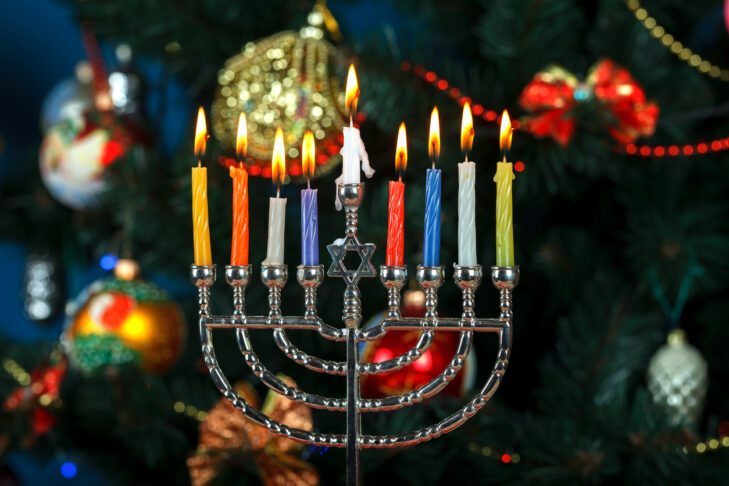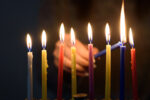This year, Barnes & Noble began decorating for Christmas at the end of October. I walked into work a few days before Halloween and the first floor had been winterized; little pine trees adorned with ornaments, plush terriers in Santa hats, gifts themed in red and green.
“Oh, no,” I said aloud, still standing in the threshold in a bat sweater. “Oh, God.”
Christmas seems to creep up earlier every year, like a high tide that breaches the sea wall. Wal-Marts in my hometown began sporting “Christmas countdowns” a full month-and-a-half before the holiday. Radio stations quit their top 40 lineups and start playing Christmas classics nonstop. The older I get, the more aware I am of the avalanche crashing down upon America every winter. But the cognitive dissonance worsens when I go home.
As a kid, I loved Christmas. My mother was raised Catholic and while she is much more spiritual than religious, we still celebrated the secular aspects of Christmas, along with the ritual of lighting Hanukkah candles. Every year, my parents would buy a real tree that we would all decorate together. We watched Christmas movies, looked at lights and left out milk and cookies for Santa. Christmas is fun for kids, but as I got older and grew attached to Judaism, celebrating Christmas felt disingenuous. The holiday is so divorced from its religious origins in America, and yet there’s no denying the implications of celebrating the holiday as a Jew.
Related
Of course, there is no war on Christmas. Non-Christians dare to exist and push back against assimilation, and apparently that constitutes a war. No one mentions the war on Hanukkah, and there actually was one. So now, as an adult, I have to decide whether or not to continue celebrating a holiday that has nothing to do with my religion.
The commercialization of winter holidays doesn’t end with Christmas, however. The rise of Hanukkah sweaters, Hanukkah ornaments, little decorations and tchotchkes paint Hanukkah as adjacent to Christmas. But it isn’t. Hanukkah is contemplative, quiet, a cultural touchstone to the Jews of our past. Equating Hanukkah with Christmas is a disservice and trying to make Hanukkah more like the secular version of Christmas is just embarrassing.
While I’m sure my feelings about Christmas will change even more as I get older, I’ve found myself at an impasse that I’m sure many other Jews feel each year as well. The question of whether or not to celebrate Christmas changes as I develop my Jewish life, and I can only hope the answer reveals itself in time.




